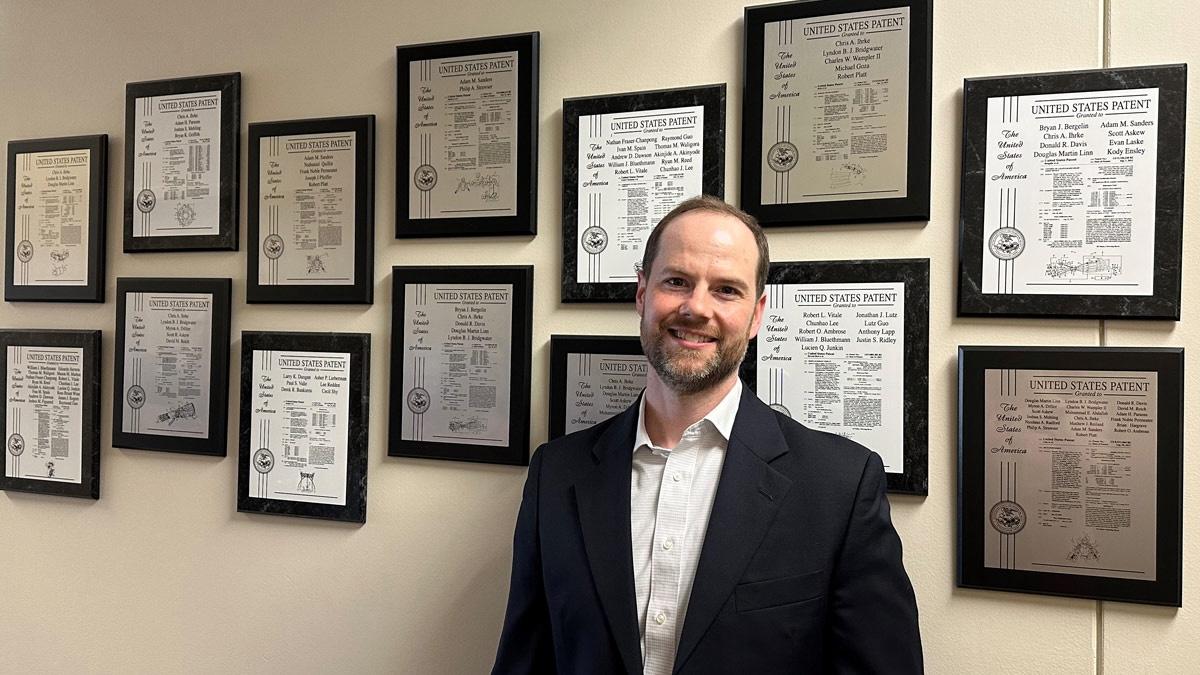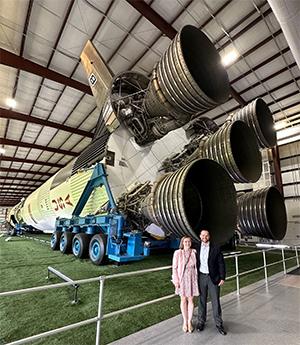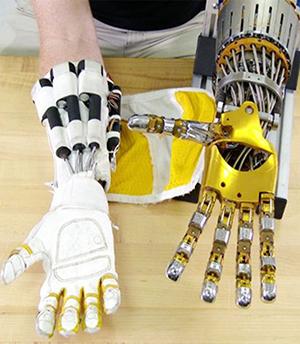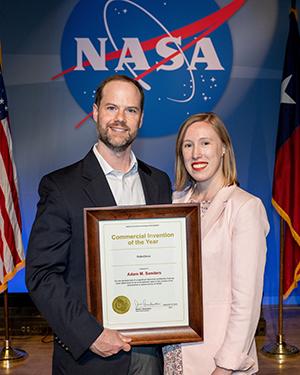U.S. Bank Engineer Recognized by NASA for Commercial Invention of the Year Award
Adam Sanders applies what he learned building robots to help improve technology at U.S. Bank
Originally published on U.S. Bank company blog
Robots. Astronauts. Space centers.
For most of us, these are the subjects of a sci-fi thriller. For Adam Sanders, they were the thrill of daily work. In 2006, the college grad launched his career as an engineer with General Motors, which quickly led to his selection to participate in a partnership with NASA for more than six years.
“Have you ever seen the movie Armageddon? There was a scene where they tested the rover in this huge vacuum chamber in the Johnson Space Center,” Sanders said. “That was the building that I worked in.”
Sanders’ cosmos didn’t coincide with Ben Affleck or Bruce Willis during his tenure as a roboticist, but he did make a name for himself in the space of engineering - racking up 11 patents (connected to the Robonaut technology) and the title of inventor for his resume.
“I was fresh out of college, so this was absolutely astounding,” he said. “There's no other word to describe it. It was a wonderful experience. I was working with some of the smartest people in the world.”
Now a principal engineer with U.S. Bank, Sanders was among a group of inventors and former colleagues recently recognized by NASA with the Commercial Invention of the Year award for Robo-Glove, a wearable robotic technology Sanders helped build during his time at the NASA Johnson Space Center.
“In assembly plants, one of the common injuries is from repetitive strain,” Sanders said. “With Robo-Glove you can pick something up, actuate the Robo-Glove so it relieves pressure on your hand, and it helps reduce fatigue and tendon strain ergonomically.”
The technology, inspired by NASA’s Robonaut humanoid robot, was patented in 2010 and 2011, and has since been bought and rebranded for commercial use, which landed it the award for Commercial Invention of the Year in 2020. Covid delayed the recognition ceremony until this year.
“At NASA, we believe technology drives exploration, and our talented innovators are key to our continued leadership in space and technology,” Douglas Terrier, NASA’s chief technologist, said in an announcement about the awards. “Each year, we evaluate our inventions based on how they’ve benefitted NASA and other industries and recognize the great people behind the technologies. The technologies we recognize with these awards will have lasting impacts on the way we transport goods, build cars and space stations, and enable audacious missions to accomplish NASA’s most ambitious goals.”
From builder of robots to transformer of banking
Landing a career in banking after building robots with NASA may seem like an unusual path, but Sanders said the two industries are fewer light years away than you may think.
“In robotics, we deal with a lot of real-time data,” Sanders said. “You say ‘Hey, robot, try to do these steps on your own but work with a human for direction.’ That's a surprisingly close synergy with what we do in capital markets.”
At U.S. Bank, Sanders works on foreign exchange technology for Global Capital Markets.
“We use information from the market and environment in real time,” he said. “What’s the market doing, the pricing, what’s going on in the news, in the world, where do we think things are going. There's more overlap than you would expect.”
In both banking and robotics, Sanders said technology is created that allows humans to interact with it, interpret what’s occurring because of it and use the information to adjust as needed to help drive a business’s goals and strategic direction.
Prior to joining U.S. Bank in 2022, Sanders spent 10 years in the financial sector and led a team of engineers. And he’s impressed with what U.S. Bank is doing with technology.
“One of the things I think is great about U.S. Bank is they give you the tools and let you explore. I really appreciate the emphasis and support driven by leadership in upskilling,” Sanders said. “We're investing in our people and investing in them in a way that makes sense for the people. Paying for tools for us to learn about new technologies – it's a particularly important thing that I'm most proud of working here.”
In his current role at the bank, Sanders is supporting the migration of foreign exchange technology to the cloud as part of the bank’s ongoing technology transformation. The new, modern platform replaces vendor systems that have a collective 50-year history in the bank.
“What we’re now using at the bank is at the forefront of tech modernization. It's built using some of the latest technology. It allows us to adapt and scale with the business in unparalleled ways,” Sanders said.





